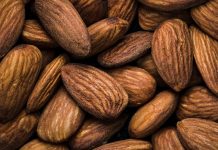
High blood pressure is like a silent intruder that can lead to serious health problems like heart disease and stroke.
Managing this condition is crucial to avoid these complications, and several studies have suggested practical steps and foods that can help control high blood pressure effectively.
In simple terms, let’s understand how we can keep high blood pressure at bay and live a healthier, more vibrant life.
Understanding High Blood Pressure
High blood pressure, or hypertension, occurs when the force of the blood against the walls of the arteries is consistently too high. It often develops over many years and can lead to severe health problems.
Lifestyle changes and managing diet are two primary ways to control high blood pressure and reduce the risk of associated health issues.
Research-Based Ways to Control High Blood Pressure
Many studies have shown that lifestyle modifications and diet play crucial roles in managing high blood pressure. Here’s a compilation of research-backed tips to control hypertension effectively.
- a) Maintain a Balanced Diet:
Research indicates that a diet rich in fruits, vegetables, lean proteins, and whole grains can help lower high blood pressure.
The Dietary Approaches to Stop Hypertension (DASH) plan is often recommended, which emphasizes consuming foods high in potassium, calcium, and magnesium and low in sodium.
- b) Regular Exercise:
Studies have consistently shown that regular physical activity can make your heart stronger and more efficient at pumping blood, which lowers the pressure in your arteries.
Even moderate exercise for 150 minutes a week, or about 30 minutes most days of the week, can lower your blood pressure by about 5 to 8 mm Hg if you have high blood pressure.
- c) Limiting Alcohol and Salt Intake:
Research shows that reducing alcohol intake and cutting back on salt can significantly impact blood pressure levels.
The American Heart Association recommends no more than one drink a day for women and two for men, and a sodium intake of less than 1500 mg a day.
- d) Managing Stress:
Chronic stress may contribute to high blood pressure. Studies suggest that developing healthy coping mechanisms like deep breathing, meditation, and regular physical activity can play a role in maintaining lower blood pressure levels.
Incorporating Proven Foods and Habits
Several foods are proven to help with high blood pressure management. Berries, beetroots, oats, bananas, fatty fish rich in omega-3 fatty acids, and seeds like flaxseeds and sunflower seeds are highly beneficial.
Additionally, maintaining a healthy weight, getting good quality sleep, and staying well-hydrated are also essential components in the battle against high blood pressure.
Conclusion
In conclusion, managing high blood pressure is not about drastic changes but about incorporating healthy habits and foods into our daily routine.
Studies unequivocally support the benefits of a balanced diet, regular exercise, stress management, and moderated intake of salt and alcohol in maintaining healthy blood pressure levels.
By adopting these simple, research-backed strategies, we can control high blood pressure effectively, reduce the risk of complications, and lead a healthier, more fulfilled life.
Whether it’s choosing berries over cookies or walking over watching TV, every little healthy choice counts in keeping our heart happy and blood pressure in check.
Follow us on Twitter for more articles about this topic.
Copyright © 2023 Scientific Diet. All rights reserved.








